A new administrative and territorial structure, completion of the formation of united territorial communities and a new state strategy in the regional development – these are the axles describing an absolutely new system of coordinates for Ukraine to develop soon.
The formation of this system finished in 2020, with a peculiar cherry on the tree in the form of the local elections, held by the way according to the brand-new legislation, though the latter being a somewhat different story.
However, it does not mean that the reformation process has completed, and the changes have become irreversible and comprehensible by the society.
People’s expectations and esteem
In particular, according to the results of the polling by the Democratic Initiatives Fund in August and September, 2020 as part of the project Re:Open Zakarpattia, it is only 15% of Transcarpathian residents that fully agree to the opinion that “the decentralization reform is going to give the Transcarpathian communities, irrespective of their national composition, more opportunities for development”, while 25% do not agree and 20% said it was difficult to answer. As for the national minorities of the region, that is Slovaks, Hungarians, Romanians and Roma, the results are even more disappointing.
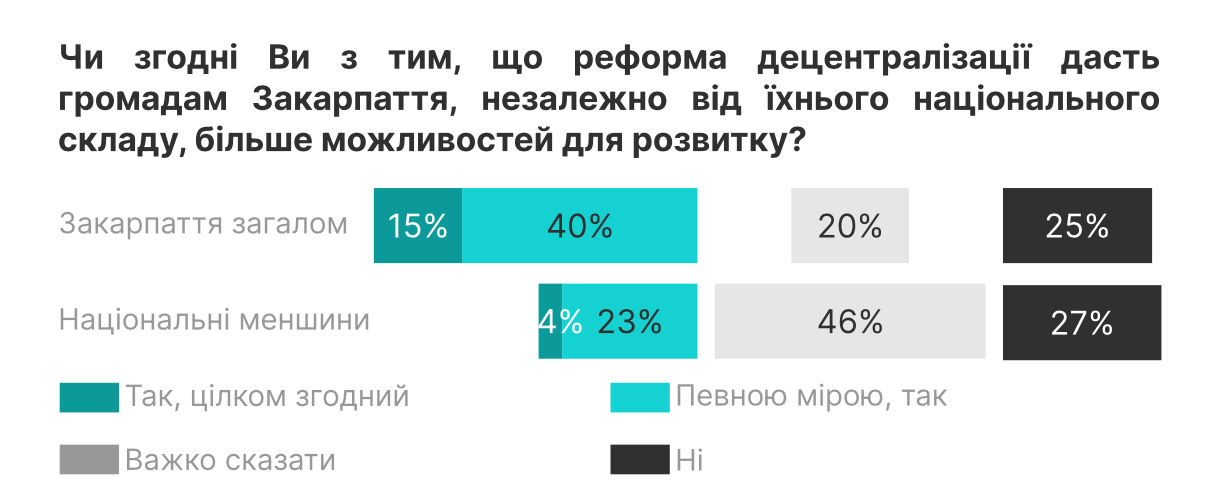
The same alarming are responses to the questions whether Transcarpathian people have any influence on decision making in their native town/city or village: 53,6% admitted they don’t really have any impact. Although it is a better indicator compared to the results of a similar research in December, 2018 (when 66.7% of Transcarpathians said “Yes”), when the decentralization reform was blocked in the region, but still the progress for the two-year’s time is insignificant, whereas the trust invoked to the key reform in Ukraine after the Dignity Revolution is still only too small among Transcarpathians.
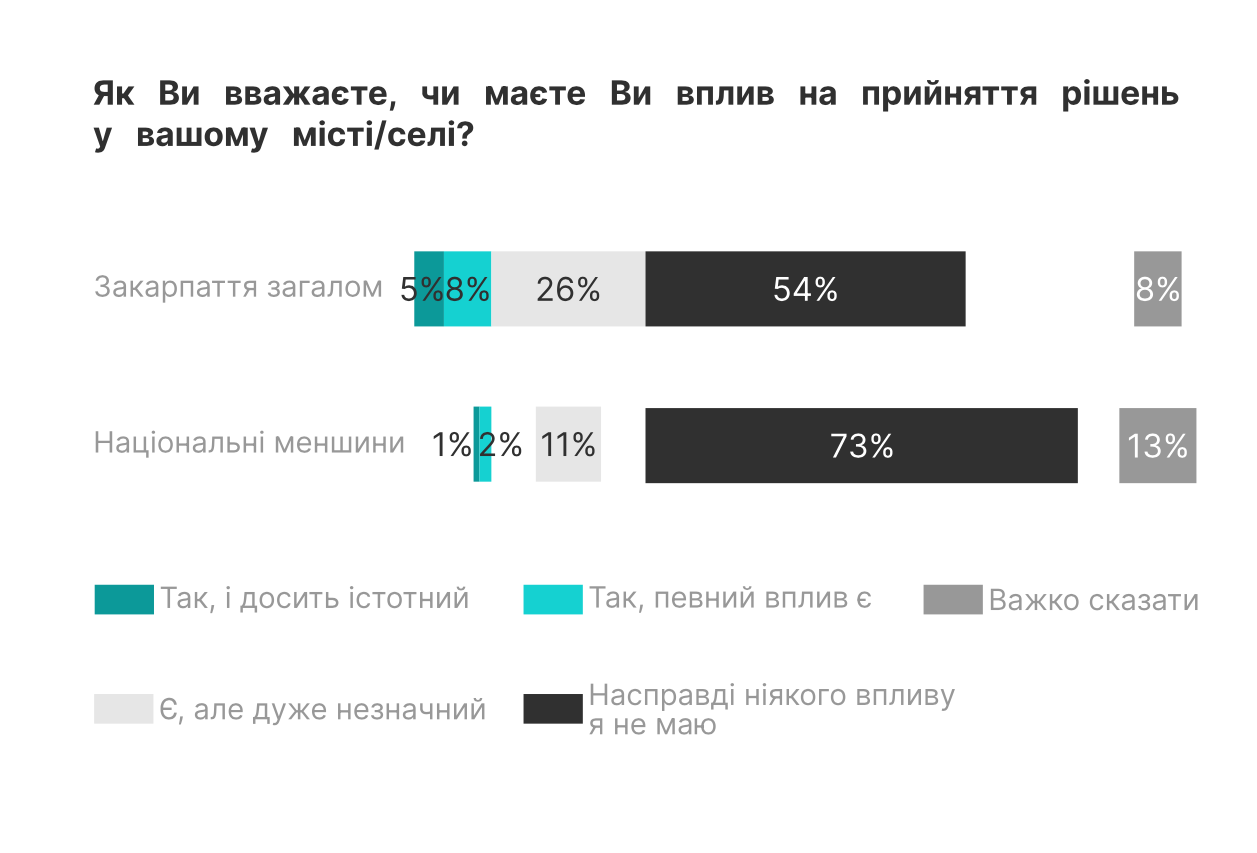
All of the challenges, the new system of coordinates, the reform and ways of creating new success stories in Transcarpathia and Ukraine were discussed at an individual board of the forum Re:Open Zakarpattia by Deputy Minister of Community and Regional Development of Ukraine, Ivan Lukeria, people’s deputy and head of the Supreme Council sub-committee on the issues of administrative and territorial administration, Vitaliy Bezgin, Head of the Transcarpathian Regional State Administration, Oleksiy Petrov and the executive director of the Association of Ukrainian Cities, Oleksandr Slobozhan. The writer of these words was lucky enough to work as the moderator of their discussion, and here is the most important that was raised in it.
The decentralization reform: score 1:0 in our favor
In Transcarpathia, similar to other regions, the first stage of the territorial and administrative reform is completed, the local elections are over, and the newly elected deputies of the local councils and the officials of the local self-government have received their authorities.
According to Ivan Lukeria, the first stage of the administrative and territorial reform was performed successfully, and the process of forming united communities is passed on a decent level. The territorial communities have obtained financial, resource and institutional abilities, and now the main task of the Ministry of Community and Regional Development of Ukraine is developing their potential and the region on the whole.
However, to do that, the key questions are to be answered: what direction does the region want to develop and each of the communities in particular. Then only could be realized the role of the state and the government.
As Mr. Lukeria explained, currently the state is changing priorities in the planning system, stepping aside from supporting definite regions or communities but turning to functional types of territories. This concept was established for the State strategy of the regional development for 2021-2027, approved this midyear.
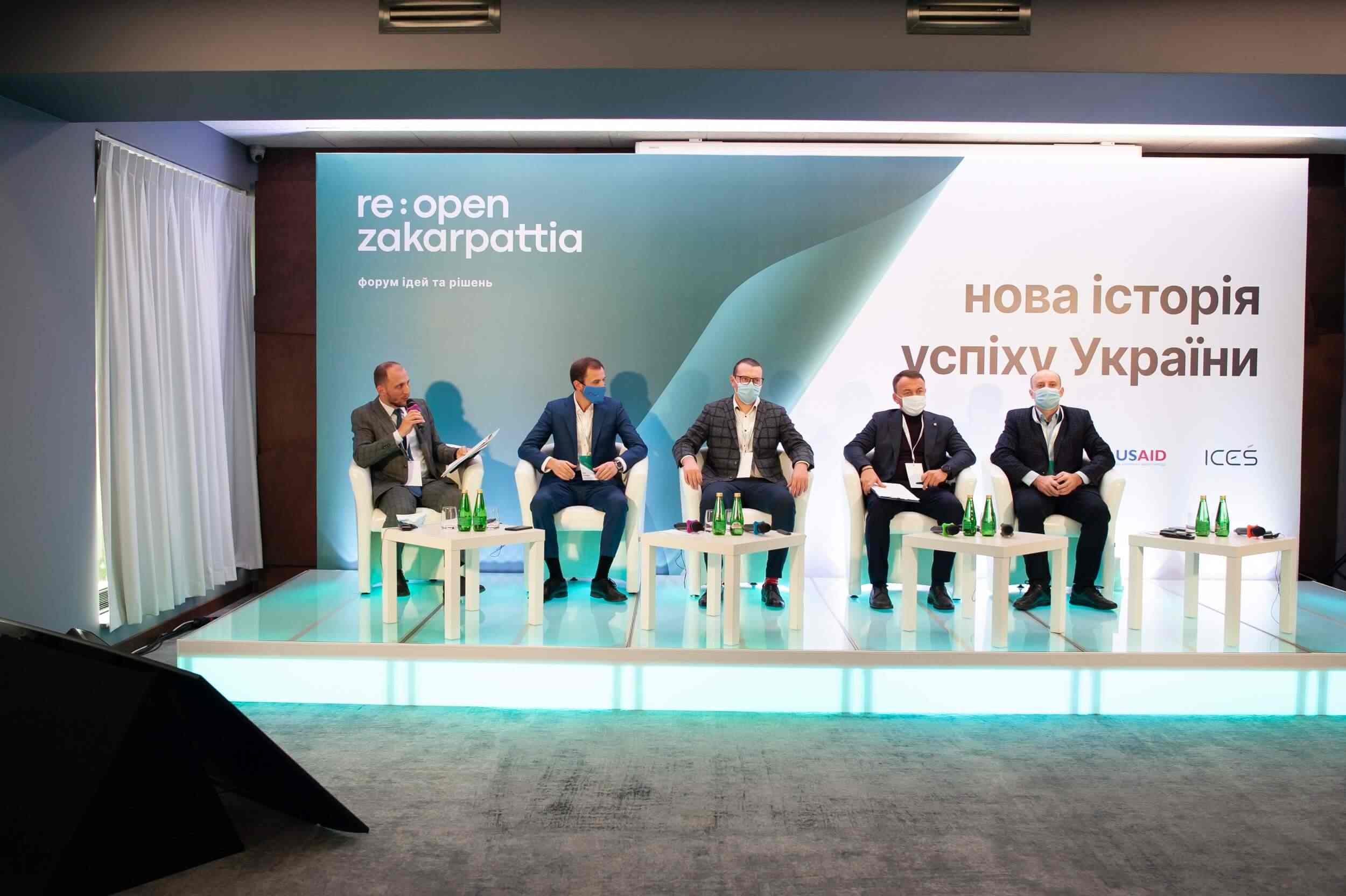
What does it mean? If a mountain or countryside area is involved, it will have the same needs in various regions. Therefore, the same approach and equal opportunities should work all over the country. On top of it, the Ministry intends to increase the role of the State Regional Administration in coordination of the growth of communities, by appointing a Deputy on issues of the regional policy and area development. An individual reload is needed for the agency of the regional development, in order to keep the balance in an effective planning system, – says Ivan Lukeria.
By the way, according to one of the scenarios, the Agencies of regional development will change their format into euro-integration offices and have already started to open in various regions of Ukraine, in particular – in the towns of Dnipro and Kherson.
One more peculiarity and a heritage of the new system of coordinates, according to the Director of the Association of Ukrainian Cities Oleksandr Slobozhan, the territorial communities have become competitors.
The competition, among other things, at the stately costs, for local staff, for material technical support from other sources. The winner in the situation will be the one applying a system approach to the job and stays ahead. This will stimulate each community for development, – Mr. Slobozhan stresses. Thus, sitting idle means staying in stagnation. With no clear vision and development strategies, the community is not going to present any interest for investors. And it will not be possible to win in case there is a strategy but in paper only, with no real implementation.
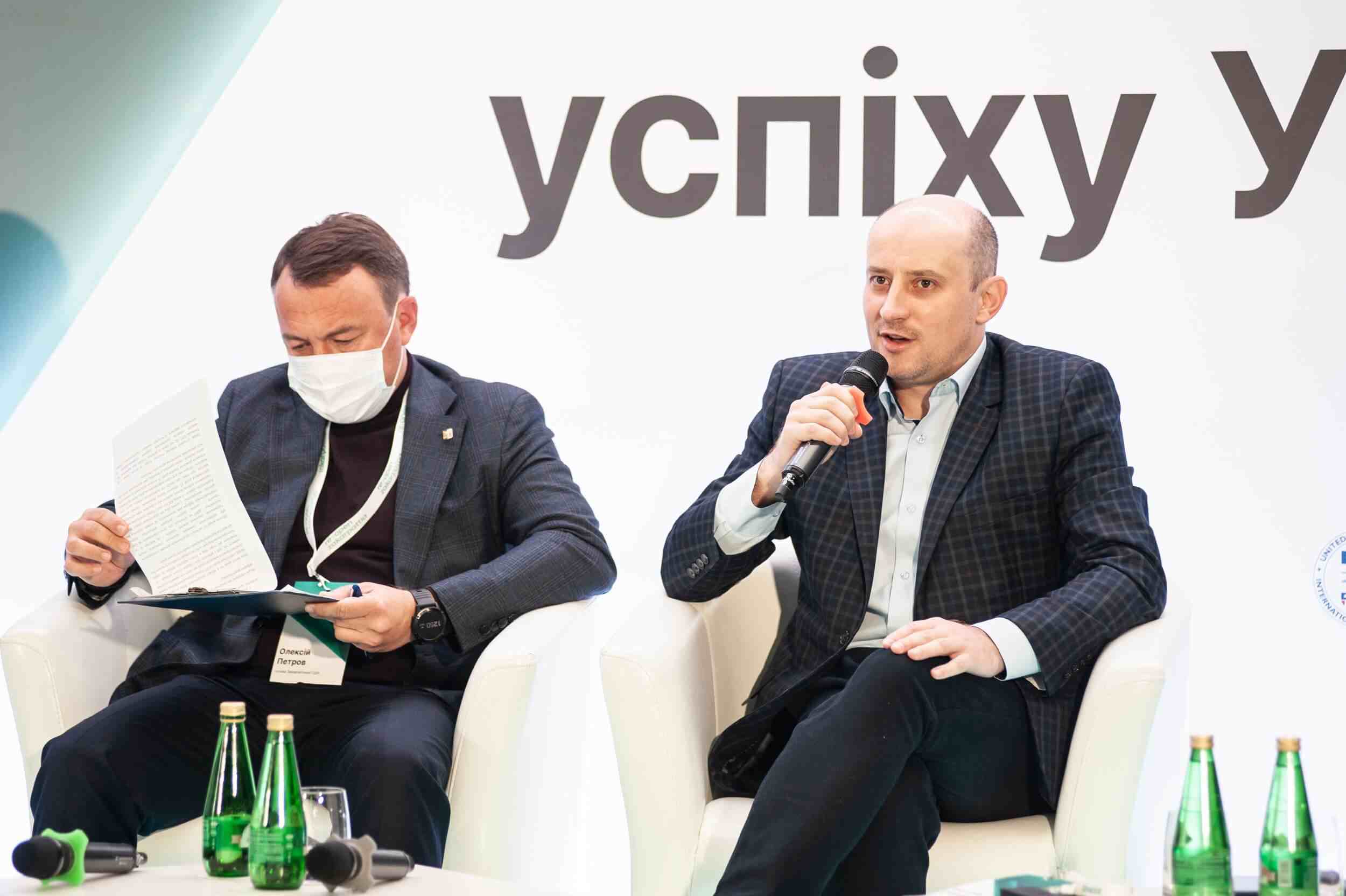
On the other hand, Mr.Slobozhan adds up, the real planning documents will mean additional resources, such as the State Fund of regional development, sectoral subvention etc. Finally, it is necessary to cooperate with local businessmen filling the budget. No need to hurry imposing businesses with taxes, instead the progressive ones should be stimulated to increase the tax incomings.
More opportunities for tomorrow
The people’s deputy VItaliy Bezgin thinks that a real victory may await Transcarpathia in case the draft bill on stimulating territories and amendments to the tax code are approved, which will change the tax stimuli for business development.
This refers to creating the so-called free economic zones.
His statement was supported and extended by Olexiy Petrov, who said that the region has a real potential to become a participant in a priority development area. Such experience already happened in Transcarpathia in the early 2000s, and that was a high growth development in economics.
We advise you to read on the experience in an individual extensive article under the title Transcarpathian Investment Miracle Few Know About.
There is hope that Transcarpathia will manage to become the western region in this model (one more free economic zone is planned to be created at the Donbass). Besides, the Head of the State Regional Administration systematically studies the financial capability of every community, tracing changes in indicators, too. And the coming year is going to be a challenge for some of them, due to discouraging forecasts and a definite decrease in economic indicators. These challenges are also caused by the coronavirus pandemic. There is hope that the Transcarpathian Regional Council will establish an additional Fund to support the newly made communities.

As Ivan Lukeria marks, it is important that due to the new policy by the Cabinet of Ministers, the Head of the Regional State Administration, according to the local self-government, may forecast the scope of funds they may obtain within the following years. It is very important in the situation when no project can be carried out in Ukraine in a period less than a year. In this case, the local self-government has a potential to compete for resources by submitting high-quality projects. A proof to this is the tender for sectoral projects. It has about 800 applications submitted for, out of which 70 are to be selected. However, the scope of applications itself already means that communities are well-prepared and able to apply. Clear rules and priorities are needed.
New roads as potential
The state is planning to perform an audit of the whole road infrastructure currently available in all the regions, as the Deputy Minister of Regional Development Ivan Lukeria informed. It is important in order to realize what really exists and it meaning for the whole state, for the region and for the definite community. Hence, priorities can be made, resources allocated for maintaining and development.
An important assignment at the beginning of the decentralization reform was to make communities accessible, and this policy should be kept up.
“Working in the city while living in the country. This concept works in many European countries. Today it is available for Transcarpathians, too.
Perhaps an individual part will be allotted in this story for district councils, which will be to shape the transport relations between communities, transportation planning, too.
Instead, as Vitaliy Bezgin stresses, upon the completion of the period of transferring property from the district level to the community level, it will make sense for the District Councils to do a self-dissolvement. At least as far as those that do not envisage key processes are concerned. Actually, roads will have importance on the state, regional levels and the level of individual communities.
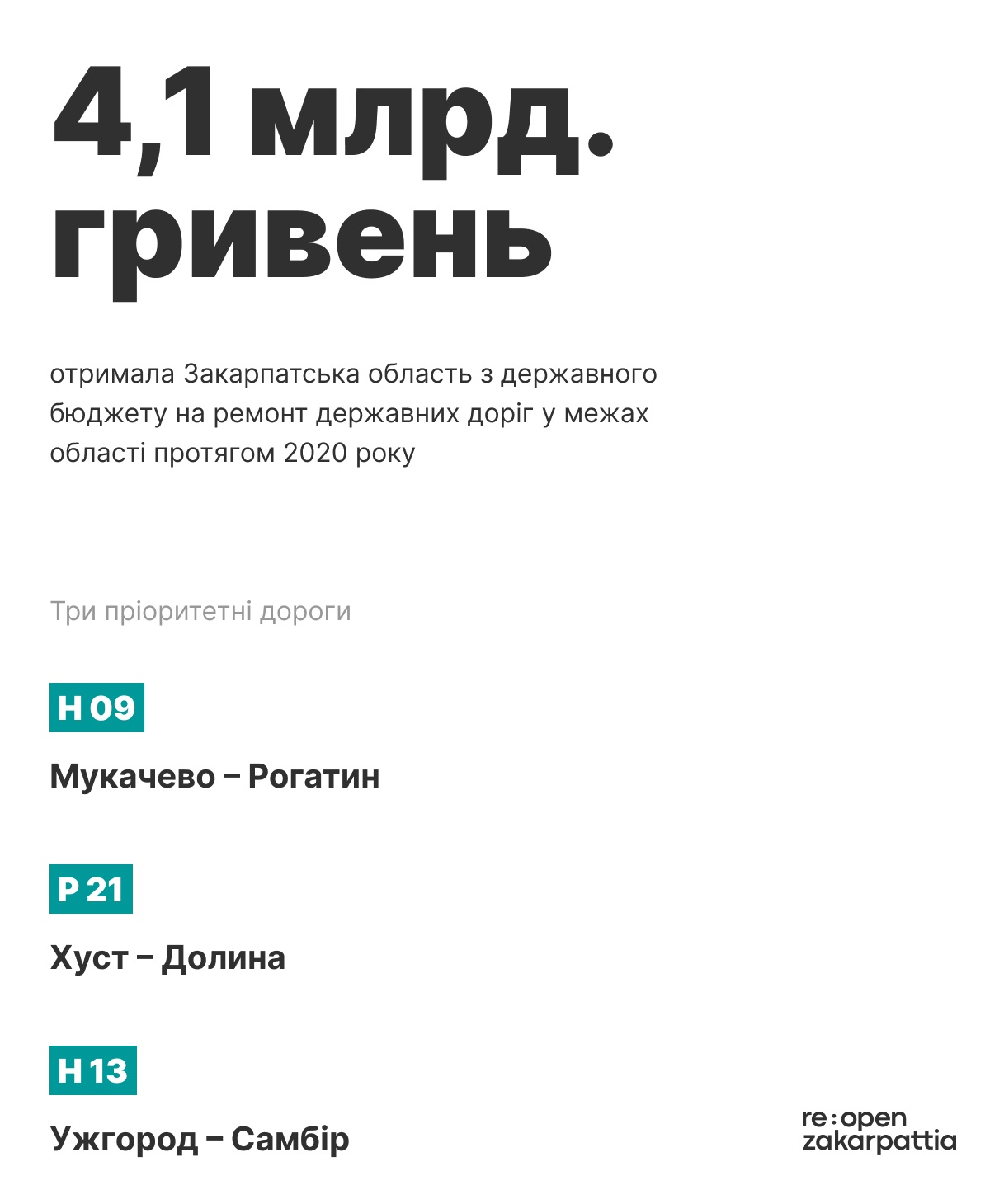
Strategies as a growth driver
As Ivan Lukeria emphasized, currently the State strategy of the regional development for 2021-2027 is based on 3 key priorities: the regional economics, high-quality services (education, medicine, professional education etc.) and the “bridging” of the country.
The next step is to be made by a region: to define what growth means to it.
In the end, the local self-government of communities is supposed to express their vision. And that may be already a wide range of assignments that the community will be focused around. Perhaps, in Transcarpathia there will be an effort to implement projects based on state and private partnership. First attempts are now being tested in the regions in the east. Actually, this means that the community gives an industrial site and the business supports technologies and equipment. As a result, we may obtain new hubs of creative economy, a new breath to the wood-processing industry, etc.
By the way, the format of the state and private partnership is most often spoken in Transcarpathia when it comes to renewal of operations in the airport of Uzhhorod. So far with no results.
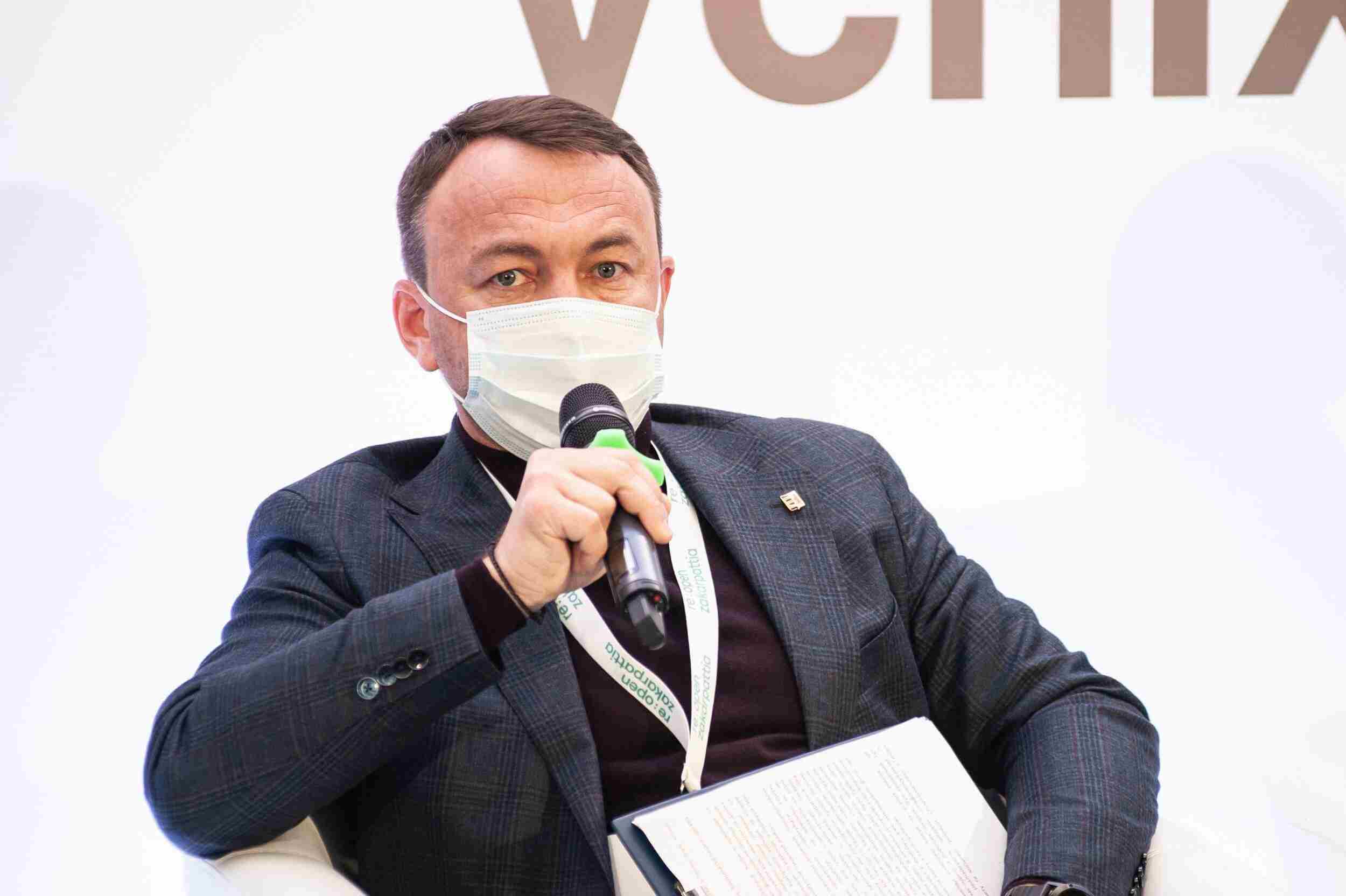
Oleksiy Petrov, the Head of the State Regional Administration, added that currently a strategy of development is being elaborated for Transcarpathia and is going to be completed soon, and a corresponding document will be approved by the Transcarpathian Regional Council of the 8-th calling. The involved participants are trying to make it similar to the state one by its priorities.
On the whole, the Transcarpathian State Regional Administration and Oleksiy Petrov personally, having changed his occupation from being simply a “governor” to the Head of the Regional council, has a vision of two powerful directions in development – industrialization and tourism.
This pandemic has shown that faraway industrial markets may place in serious jeopardy the stability in manufacturing chains in the EU countries. Transcarpathia is close by, and a capacious market with a human potential and ample opportunities.
In this respect the top priority assignments are enlarging the acceptance rate for our borders. This should be worked on right now, – says Petrov. The first thing stat started to be implemented is high-quality transport corridors leading to the checkpoints. This work will be continued further on, – Petrov reassured. Simultaneously there will be work performed on extending the passing infrastructure at the EU borders. In case Transcarpathia obtains a part in a free economic area, it is going to give a rapid synergy effect, – the ex-Head of the Regional State Administration and the newly-qualified Head of the Regional Council is assured.
In this respect, we advise you to look through our research under the title “Isolated in the center of Europe – ways to overcome the infrastructure underdevelopment in Transcarpathia” .
Another direction is developing touristic hubs. The priorities look as the downhill skiing and thermal spa-resorts. We have a huge potential here since snow coverage keeps remains for a long time in our region. Although, according to the opinion of some experts, this advantage is arbitrary, and Varosh is going to publish an individual article on this. Meanwhile the thermal springs are warmer than those in Hungary.
Surely, at the moment the only thing may stop us: lack of proper documents in the local self-government. This means the development strategies, those of ecological assessment, spatial planning documentation, too.
Definitely it all costs a lot of money that the communities now don’t have. And we will be searching for opportunities to find the funds. However, communities are also to work on their elaboration already today. No business will be willing to join in case there are no documents. Oleksandr Slobozhan adds that the documents are not only needed but to be followed. The strategy must be inclusive in everything, and offices of local self-government must stick to it in their activity. Therefore, plans of social and economic and cultural development, policy objectives, planning and urban planning documentation – this is a list of documents a community must have and follow. If it really wants an investor.
Financing of such needs is envisaged in 2021 due to a special fund established in partnership at the international level, making up 62 million UAH. This is a rather small amount that communities can obtain by competition, so it all depends on the quality of the applications and a responsible and priority policy. In general, communities should already compile their own project banks right now by priorities, even without any specific competition. In them, it must specified what the community is planning to carry out in the coming 3-5 years. This will be a proof of their commitment.
On top of all, Mr. Lukeria says, the Ministry of Regional Development is working on the possibility for Transcarpathian communities to participate in the Danube transnational program creating legal basis for obtaining resources from the EU funds and implementing common projects with countries participants of the EU. Those will be additional channel of resources for the development of communities, reinforcement of trans-border cooperation. It is planned to shape a fund of trans-border cooperation in 2022, aimed at additional budgeting of programs carried out together with EU countries having common borders with Ukraine.
Vitaliy Bezgin share some plans of the Supreme Council of Ukraine. According to them, it is envisaged to launch a monitoring system of capacities of communities so that each one could trace its progress based on stable indicators. The state, in its turn, will be more comfortable to define stimuli and priorities needed for meet the development requirements of the communities.
So the reforms are in progress, and the year 2021 is going to become not only a test for capabilities for the regions within the new system of coordinates but another chance for rapid quality changes and new success stories. In a year we will happily dwell on the subject.
Усю панельну дискусію можна переглянути у відео:
Volodymyr Fesykov, an expert on decentralization, especially for Varosh
The main photo is Serhiy Hudak. Other photos – Carl Smutko
The present content has been presented by the public foundation “Institute of Central European Strategy” supported by the USA Agency on international development (USAID). The details of the content is a sole responsibility of the above Institute and may not necessarily represent USAID’s point of view or that of the USA Government. Reproduction and using of any part of this content in any format, including the graphical or electronic one, copying or using in any other way without a relevant link to the original source is prohibited.





